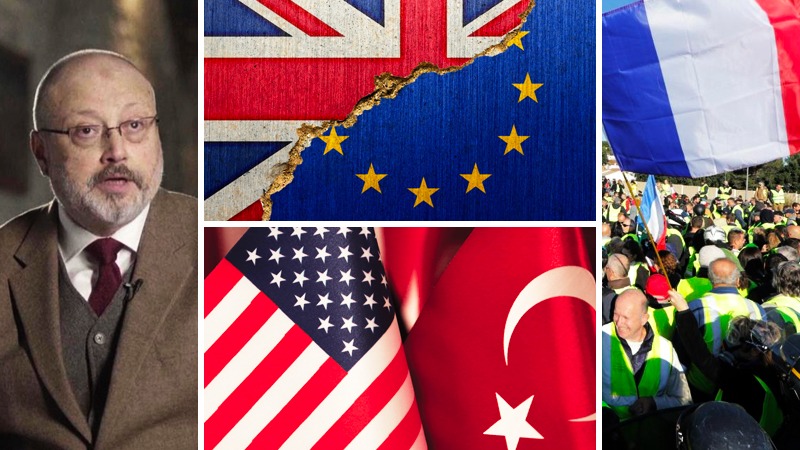Brexit… a deal at last?
Britain and the European Union have finally agreed on a draft agreement on Britain’s departure from the EU this Wednesday. However, now prime minister Theresa May is faced with the most difficult part of the process, achieving approval from parliament.
May hopes that the transition period will satisfy both supporters of Brexit and those who were against the idea, leaving London with close ties to the block. Britain’s official exit is scheduled for March 29th of next year.
The situation has already developed into an internal political crisis – after the first arrangements were concluded several ministers resigned, while others expressed their discontent regarding the current negotiation process with Brussels.
The prime minister’s opponents in parliament have already strongly criticized the agreement. Supporters of the Brexit deal from May’s party have said that the prime minister made concessions to the EU and that they will not approve the new agreement.
The minimum of votes necessary for Parliamentary approval is 320 (of total 650 members).
Protests in France
A wave of protests has kicked off against liberalizing economic initiatives put forth by president Emmanuel Macron – people are in particularly against increases in fuel prices.
The demonstrators known as “yellow vests” took the streets and set up roadblocks all over France, with some 287,000 people participating in around 2034 actions. About 409 people were injured during the protests, and at least one person is dead.
On Saturday, President Macron waited out the turbulent events in Elysee Palace in Versailles under police protection. The “Yellow vests” intended to march directly to the president’s residence there and occupy the building.
The French government has stated in response that it will continue the same tax and environmental policy, despite the demonstrations.
New details emerge in the Khashoggi case
The Central Intelligence Agency (CIA) has come to a conclusion that the crown prince of Saudi Arabia, Muhammad bin Salman Al Saud, personally gave the order to kill Washington Post journalist Jamal Khashoggi in the Saudi Arabian consulate in Istanbul. According to media reports, the prince’s brother and Saudi Ambassador to the US Khalid bin Salman also participated in preparations for the murder.
The CIA came to the conclusion after studying a number of sources of information including a recording of a call between Khashoggi and Khalid bin Salman where the ambassador tells the journalist to go to the embassy and assures his safety.
Turkey-US relations
A specialist on Turkish-US relations, Steven A. Cook wrote a report entitled “Neither Friend nor Foe”, which was published by the Council for Foreign Relations, where he is a senior fellow.
The analysis covers the troubled partnership, its contradictions and possible directions. Cook concludes that Turkey may be an ally of the US in the formal sense, but it is not a partner, as the problems between the US and Turkey are structural.
“In many areas, Turkey is a competitor and antagonist of the United States. As a result, American officials should abandon the intensive and often fruitless diplomatic efforts to convince Turkish policymakers to support the United States”, he states in the report.
In Cook’s opinion, Washington should not be reluctant to oppose Turkey directly when Ankara undermines US policy: “In practical terms this means the United States should develop alternatives to Incirlik Air Base, suspend Turkey’s participation in the F-35 jet program, and continue to work with the People’s Protection Units (YPG) to achieve its goals in Syria.”

















Leave a Reply